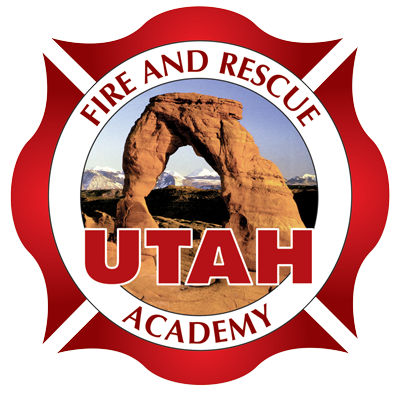More than 50 years ago, leaders in the fire service and adult education recognized that Utah's firefighters were not well trained. At the time, fire departments set their own standards and operating procedures. Four fire training programs existed in the state. Each of these were ineffective freestanding programs, and the meager state funding was split among them. The system did not work.
In 1959, the State Board of Education commissioned a study which concluded that all fire training should be consolidated under one agency with a strong emphasis on outreach programs. This plan was put into place in 1960 when Central Utah Vocational School (CUVS) was designated by the Board as the Fire Training School. CUVS later became Utah Technical College (UTC), then Utah Valley Community College (UVCC), then Utah Valley State College (UVSC), and now Utah Valley University (UVU).

In 1971 the Utah State Legislature passed the State Fire Prevention Law (HB 347), which allowed the Utah Fire Prevention Board (FPB) to work with the Board of Regents and the Board of Education to develop a statewide fire training system. State funding, at that time, permitted only one person to coordinate the program and several part-time field instructors to travel the state.
Over the years various attempts were made to formally fund the state academy project but the plans never came to fruition. It was not until 1992 that a coherent and comprehensive strategic plan was developed under the leadership of State Fire Training staff and fire service representatives from all over Utah. The planning process brought together a broad cross section of the fire service and other public officials. These officials agreed on the necessity of maintaining and expanding a centralized training and certification system with a vigorous and comprehensive program of outreach activities. This strategic plan addressed the details of passing legislation with a funding mechanism. It also outlined the multi-year steps required to complete the project.
In 2020, when Governor Gary Herbert signed into law SB 209, "Fire and Rescue Training Amendments," significant changes were made to the Fire Prevention Board administrative duties. These changes directly affected the way the Utah Fire & Rescue Academy (UFRA) operated and reported information. The Fire Prevention Board began consulting and working directly with Utah Valley University (UVU) by providing technical expertise, advice, direction, and support to ensure UFRA is meeting Utah Code §53B-29-202. A Memorandum of Understanding was written that outlined the responsibilities and functions of each party and demonstrated the willingness of the parties to move forward with these changes.
Beginning in 2023, UVU and the FPB began reporting to the Education Interim Committee, the Law Enforcement and Criminal Justice Interim Committee, and the Higher Education Appropriations Subcommittee of the Legislature. These reports will include UFRA successes and challenges associated with operations. We value this relationship and will continue working hard with the goal of delivering relevant, state-of-the-art training to all firefighters statewide.
The mission of UFRA is to "train, certify, and support the Utah fire service at the highest quality level possible."
This statement directs every goal in our Strategic Plan and every dollar spent to implement it.
The Utah Fire & Rescue Academy has evolved into a dynamic organization that provides fire and emergency service related training, professional certification and resource assistance. These services are provided at UFRA through grants and contracts with state and federal agencies. The academy funding is earmarked for the provision of specific fire training and certification programs.
The academy is located near the Provo Airport at a 10-acre training facility. It includes a wide range of fixed and mobile simulators to safely train responders in the latest techniques of emergency response to any type of incident. Most training, however, is done around the state on a regional basis that leaves personnel close to their response areas.
Regional classes are done at the academy and at various fire departments. UFRA Support Services division runs a fleet of mobile props and trailers to support training classes statewide. UFRA has been an innovator in distance education, customer service, certification, outreach activities, and technology.
If the past is any indicator, UFRA will continue to be at the forefront of firefighter and emergency response training.